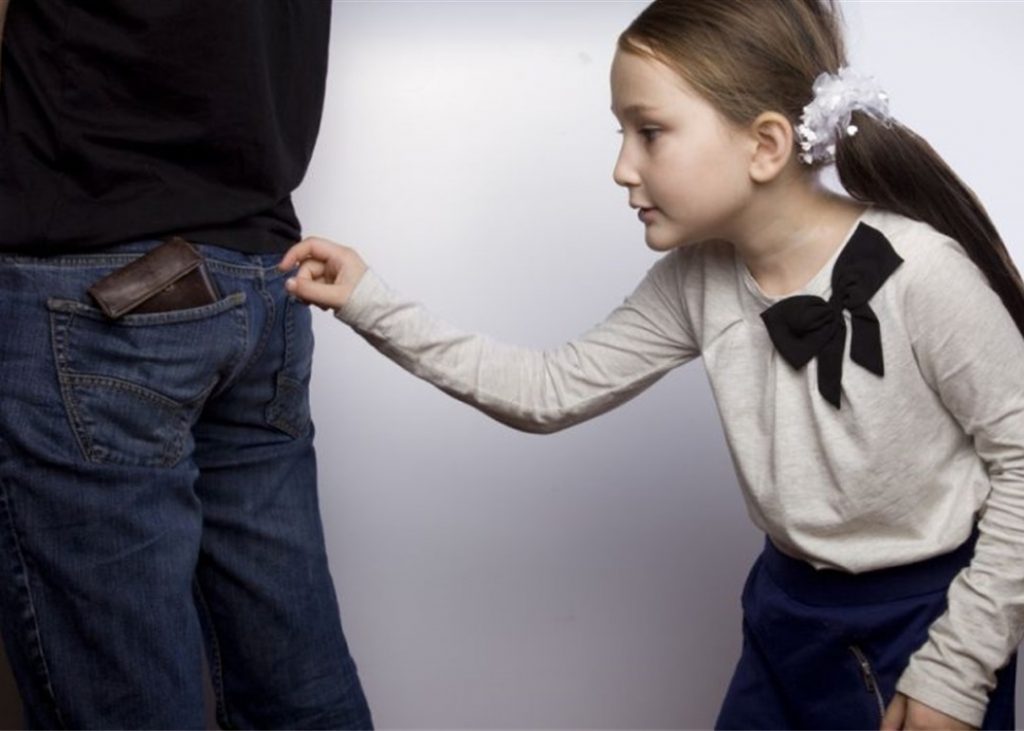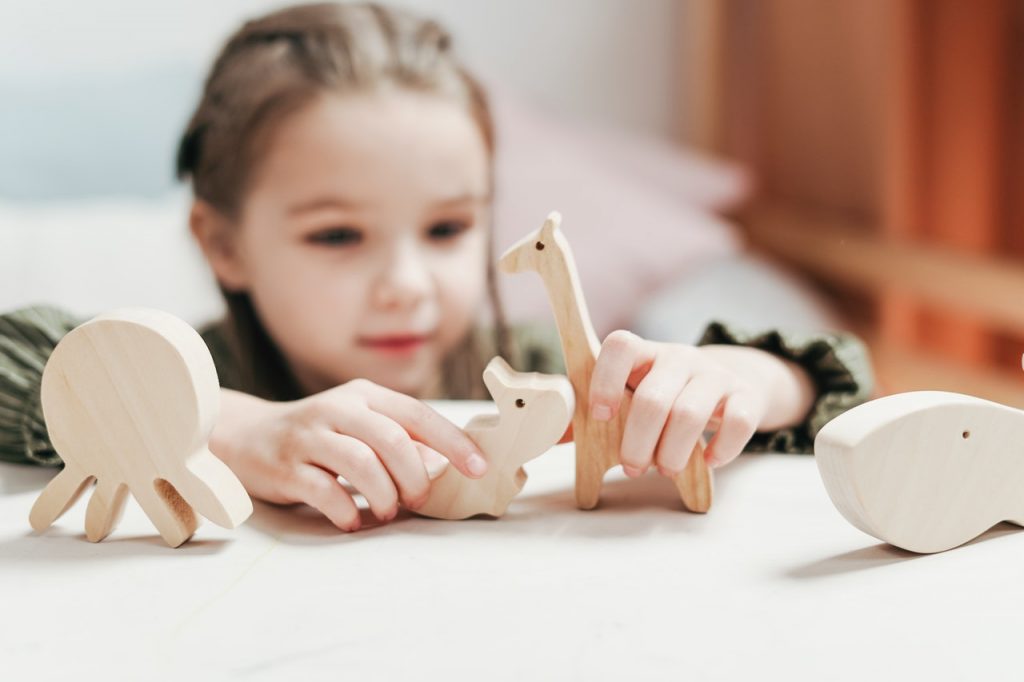Why Do Kids Steal? Common Causes and Strategies for Parents

Understanding the complex motivations behind why kids steal behavior provides insight into the underlying psychological, social, and environmental factors influencing their actions.
When parents find out their child is stealing, they often feel confusion, shame, and, of course, fear. If theft was previously considered something common for children from dysfunctional families, today it’s not uncommon for children from families with high incomes to steal.
So why do kids steal? And how do you get stealing children to stop taking what doesn’t belong to them?
We analyzed examples based on the real experience of parents, deduced common patterns—when, how, and why children steal at a certain age—and suggested strategies based on the American Academy of Child and Adolescent Psychiatry (AACAP) and the Centers for Disease Control and Prevention (CDC) behavioral studies in children as well as on ‘The Discipline Book’ by Martha Sears to help parents deal with kids who steal.
Contents:
- The Phenomenon of Stealing in Children
- Why Do Kids Steal?
- Stealing in Children in Various Age Groups
- Parenting Mistakes
- How to React Appropriately to Children Stealing?
- How to Discipline a Child Who Lies and Steals?
- How to Prevent Stealing in Children
- FAQs
The Phenomenon of Stealing in Children

Prostock-studio/Shutterstock.com
Almost every one of us has felt the desire to possess something that did not belong to us, at least once in our lives. But in most cases, something kept us away from crossing the line. What was it? Strong morale? Willpower? Or perhaps the fear of punishment?
Some children have developed ‘immunity‘ against theft at an early age. Others, however, don’t seem to understand the idea of ownership. It’s why theft might be an everyday occurrenc,e of which the child does not even feel ashamed.
The psychology of stealing in children is such that the actions of a child do not always hold a criminal rationale behind them. Moreover, children may not always understand that their action is a manifestation of a bad deed. It might not be that they have any mental health conditions or other behavior problems—perhaps they just wanted that item really badly. Therefore, before blaming a child for having a criminal predisposition, you will, first of all, need to find out the reason why your son or daughter began stealing.
Do you suspect stealing by your child? Can’t get the truth from them? Find out how things really are—download the Findmykids app from the App Store and Google Play.
Why Do Kids Steal?
The reasons for which children start taking the possessions or the money of others can be classified into five main types.
1. Impulsivity, the lack of self-control or willpower

Prostock-studio/Shutterstock.com
Normally, arbitrary behavior is formed by the time children reach the age of 6-7 years old. Before this age, it’s difficult for a child to cope with their immediate desires, and they might have poor impulse control. For example, bringing their favorite toy home from kindergarten or eating sweets from the table when their parents are visiting their friends.
What infuriates parents the most is that a child does not understand the severity of their actions, does not feel remorse, and does not apologize. There is a simple explanation for that: the sections of the child’s brain responsible for self-control and moral behavior have not yet matured. That’s good news because the stealing might not be due to any underlying issues, but simply because of the child’s immaturity.
2. The feeling of inferiority in the child
These problems stem from parent-child relationships.
Mothers and fathers in such families may be busy making money or raising younger children. As a result, the child does not feel loved or needed and suffers from loneliness. They feel the need to draw the attention of their parents to themselves, and so theft takes place.
The action doesn’t have anything to do with the idea of ownership or even wanting a particular item too much, but rather with the desire for parents to focus on the child.
3. A lack of distinction between what’s theirs and what’s not

Prostock-studio/Shutterstock.com
Yes, it may seem that children should be familiar with these notions from the moment they are born. However, a large number of cases of stealing in children suggest otherwise, as they happen mostly because of an incorrectly formed morality.
The child may simply not understand why their mother’s scarf can be taken from the closet; however, the mother’s wallet is a banned zone. And why not take that wonderful red car toy from their friend Stephen? Stephen is a friend, hence it surely means that the car belongs to Stephen as much as it belongs to Stephen’s friends. You’ll notice that grown children have a better idea about ownership rights, so this should resolve as they age.
4. Kleptomania
Kleptomania is a pathological urge to steal something. The stolen object usually does not even hold any value for the child. They grab the first thing they see, and then forget about it or lose it very quickly.
True kleptomania is rare. Children who have it suffer from organic brain damage. Theft is set in their perception and fixed as a form of conditioned response. Educational measures are useless in this case, and the assistance of a mental health professional is required since kleptomania is a psychiatric disorder.
5. Being forced to do so

Prostock-studio/Shutterstock.com
Peer pressure is a common cause of stealing among school-aged children, perhaps more so than psychological problems or any kind of personality disorder. Classmates or older children can extort or take money from a child. Children are afraid to let a family member or other adults know, which eventually involves stealing.
The child may also be addicted to illegal substances and may be stealing money to purchase more drugs.
Stealing in Children in Various Age Groups
Stealing is fairly common at any developmental stage, and while it doesn’t necessarily indicate any kind of emotional problems or things of that nature, it can be helpful to understand what might cause it at various stages.
Pre-School Age

Prostock-studio/Shutterstock.com
The term ‘theft’ is not really applicable to a preschooler, as their actions don’t hold criminal reasoning behind them.
Very young children don’t steal; they just take someone else’s things without permission. Pre-schoolers take things because they do not yet have a clear distinction between what’s theirs and what’s not.
It’s for this reason that your pre-schooler might come home with a stolen item, either from a friend’s house or the grocery store. The concept of ownership just isn’t something this age group understands until they’re a bit older.
At this young age, it’s crucial to reinforce to young kids that stealing is wrong. This will help to prevent future bad behavior.
according to a 2017 study published by the American Academy of Child and Adolescent Psychiatry (AACAP), it’s recommended that parents talk to their pre-schoolers about empathy and why stealing is wrong.
Talking to pre-schoolers about empathy helps them learn to respect other people’s belongings just as they respect their own belongings. It reinforces the idea that stealing is wrong and encourages more ethical behavior.
School-Age

Prostock-studio/Shutterstock.com
When children reach school age, it’s not uncommon for stolen objects to be small items like stickers or toys. In the majority of these cases, kids steal spontaneously. They simply don’t think about the consequences of their actions and the feelings of others.
Theft at a school age often involves lying. When caught stealing, this age group will lean on lying, even when caught red-handed. Through a child and adolescent lying, children seek to avoid fair punishment for their wrongdoing.
Theft in school-age children is caused mainly by a lack of impulse control, which is very common in this age group. Kids steal because they just don’t think about the consequences of their actions.
Incorporate household rules into your family life to help teach your school-age child that stealing is wrong.
according to research by the Centers for Disease Control and Prevention (CDC), establishing family rules creates structure. Structure better helps children know which behaviors are acceptable and which are not.
In addition, household rules and the consequences for breaking these rules can include an emphasis on honesty, trust, and respect for property. When these rules get broken, children will know that their habit of lying or stealing will result in appropriate disciplinary action.
Adolescence

Prostock-studio/Shutterstock.com
Once your child becomes an adolescent, you might want to give them a clean slate for deeds done before. However, if stealing continues, it could be due to other reasons.
Thefts committed by adolescents are often associated with the desire to purchase something that is considered to be ‘in trend’ with the aim of becoming a part of the group of their peers.
Adolescents with underdeveloped willpower and unformed moral principles are much more likely to steal. At this child’s age, stealing can also be motivated by other members of the friend group.
The truth is, children steal. However, if parents don’t intervene or do something to stop this behavior in its tracks, the stealing continues into adolescence. That’s the time when you should act to ensure healthy aging and avoid serious problems once the child grows up.
Here are some tips on how to get stealing children to stop:
- Enforce Consequences. Depending on the type of stealing your teen participates in, severe consequences might be in order. For example, if a younger sibling takes their older sibling’s clothing consistently without asking, making that younger sibling share their clothing might serve as a suitable punishment. However, if your teen shoplifted from a clothing store, giving them extra chores until they can pay back the stolen goods is a better way to enforce the consequence of their actions.
- Remove Temptations. To help your teenage family members break free from their impulse to steal and lie, work together to problem-solve some solutions. One solution is to remove temptations from your teen’s life. For example, set up a new rule if your teenager shoplifts from the mall after school with friends. Don’t allow them to go to the mall without adult supervision. Maybe your teenager is stealing items from a friend’s house. Remove the temptation by not allowing them to go to friends’ houses until they can rebuild your trust.
- Seek Professional Help. If your teen is engaging in an activity that goes above and beyond taking a friend’s toy, seeking out a school psychologist or adolescent psychiatrist is a good way to help your teen understand why stealing and lying are wrong. A professional can identify the root problem, which can sometimes include mental health and behavioral concerns, conduct, and social issues.
Are you worried about your teen? Put an end to your sleepless nights and help your child. Download the Findmykids app from the App Store or Google Play, in order to use the location services or the wiretapping of the surroundings.
Parenting Mistakes

Prostock-studio/Shutterstock.com
To help guide parents in how to act when it comes to stealing and lying, here are a few examples of parenting mistakes:
- A lack of intervention occurs when stealing or lying is caught. Identifying the problem for a child early in their development helps them understand why the behavior is wrong sooner rather than later.
- Accusing, name-calling, blaming, or shaming. A child needs to know that what they’ve done is wrong. However, parents need to build trust to receive trust. Positive reinforcement is key to changing problematic behaviors.
- Providing a punishment that is too extreme or too lenient. The punishment for lying or stealing must fit the crime.
- Lack of connection. Connecting with a child helps parents teach empathy and know when their child is lying.
How to React Appropriately to Children Stealing?

Prostock-studio/Shutterstock.com
If your child has stolen and brought home someone else’s possession, such as a toy:
- Take a deep breath, and don’t lose your cool. You need to respond in a positive way that teaches your kid not to steal again. This prevents stealing from becoming a habit.
- Have a one-on-one conversation. Explain to the child the nature of their actions and the potential consequences.
- If the toy that was brought home certainly belongs to someone else, it would need to be returned with apologies presented to its owner.
- Express your attitude towards the theft. Tell the child that it’s not something acceptable in your family. You should also let them know how upset the person who no longer has their toy or money feels.
If your child stole some money:
- Try to find out what the child needs the money for.
- If the child is getting blackmailed by older children, there is no point in scolding them; they may already be threatened. Ask them to provide details on the situation. Get the police involved if needed.
- If the child is trying to win their classmates over by buying them sweets and toys with the stolen money, explain to them that friendship can not be built solely on materialistic aspects. Offer the child other ways to win friends—for instance, by inviting them over to your house, on a picnic, watching a movie, etc.
- It often happens that children steal money with the goal of attracting the attention of their loved ones. Spend time together, and express interest in their life.
- Come up with an appropriate form of punishment.
How to Discipline a Child Who Lies and Steals?

Prostock-studio/Shutterstock.com
It’s absolutely crucial for parents to make sure that their child understands how serious it is to lie and steal. However, it’s also critical in forming close relationships to make sure that children know they aren’t bad people.
To help discipline a child, here are some tips on how to stop a child from stealing and lying:
- Don’t ignore a lie or theft. Discuss the wrongdoing with your child and find a collective solution.
- Avoid any form of ‘public punishment’. Have a one-on-one conversation with your child.
- Don’t rush to accuse a child of stealing or lying. Keep the presumption of innocence in mind.
- Refrain from bold statements such as ‘you are a thief’, ‘you will go to jail’, or ‘you will become a criminal when you grow up’. Replace them with ‘softer’ terms, such as ‘taking someone else’s possessions’ and ‘taking something without permission’.
- Try to find out the reason why the child started stealing money or something else. If the child starts lying and denying their wrongdoings, don’t insist. Give them time to reflect on their actions.
- If you have tried everything to stop your child from stealing and lying, seek the help of a psychiatrist.
Read also: Ways To Discipline Your Child or Why Punishment Doesn’t Work.
How to Prevent Stealing in Children

Prostock-studio/Shutterstock.com
as always, it’s easier to prevent an issue than to fix it. Therefore, it’s important for parents to stick to the following recommendations based on ‘The Discipline Book: How to Have a Better-Behaved Child From Birth to Age Ten Paperback’ by Martha Sears:
- Start teaching children that stealing is wrong from a young age. This leads them to control their impulses and respect other people’s property as they grow older.
- Be an involved parent and connect with your child. Connected children feel empathy at an earlier age. They find it harder to lie because they feel bad about their actions.
- Tell children to keep financial matters private and to store money in a safe place. It’s impossible to trust everyone, so remove the temptation.
- Ownership is an important concept to teach a young child. Toddlers go through an ‘it’s mine’ phase, which is an excellent opportunity to teach them to return items to their owners instead of stealing.
- Encourage your child to give back the stolen item on their own. This teaches them to correct the wrong and make it right.
- Identify the reason why your child stole or lied. Is it because they need attention or more supervision? Identifying the cause helps you to reconnect and resolve the issue.
- Look out for risk factors, including anger, change in family dynamics, impulsive behavior, insensitivity to others, and boredom. These risk factors help to explain why your child is stealing.
- Praise your child’s honesty. This is positive reinforcement, which guides your child in choosing the right actions.
Remember: everyone makes mistakes! So whatever trouble your child has gotten themselves into—don’t turn your back on them. Always give children a chance to redeem themselves.
FAQs

DimaBerlin/Shutterstock.com
How to punish a teenager for lying and stealing?
As young kids grow into teenagers, it’s common for them to start pushing boundaries. Unfortunately, part of this process is telling lies, sometimes to steal or take what they want.
Here are a few tips for how to stop a teenager from stealing and lying:
- Take away their phone privileges
- Give them extra chores
- No extracurricular activities
When appropriate, parents of teenagers who steal and lie can also invest in apps like Findmykids. These apps help to monitor your teen’s activity in tough situations.
The most important thing to remember is that the punishment must match the crime and the teenager. So, for example, if your teen took your car without permission, then remove car privileges.
Why would a child start stealing?
The most common reason is that they want the item they stole. Other causes could be problems with self-esteem or their wish to fit in with their friends. It’s important to talk to your child to identify the actual reason for stealing and ensure they understand potential repercussions.
How do I get my child to stop stealing?
Experts advise taking away the item they stole, and if it’s safe, ensure they are the ones to return it to the respective owner. If that’s not an option, ensure to talk to your child and explain that stealing is wrong. Their action should have clear consequences, so think about a suitable punishment. Try not to be too frightening and remain calm. If the action repeats, consider asking for professional assistance.
What is the cause of stealing?
We can assume different motives, such as the desire to have a toy, pressure from the kid’s peers, jealousy, or even kleptomania. It’s strongly advisable to determine what inspired your child to perform the theft, as that will help you act accordingly.
What is a good punishment for stealing?
It’s important to find an optimal punishment because being too harsh can make the child even more problematic. If they stole a toy, make them return that item and take away their favorite toy for a day. Consider placing a time-out on some of the child’s privileges, such as going outside or watching TV.
Is stealing a symptom of ADHD?
Stealing isn’t a direct symptom of ADHD, but it can sometimes be linked to the behavioral challenges that come with the condition. If your child has ADHD, they might struggle with impulse control, which can lead to actions like taking something without thinking about the consequences. This doesn’t mean they lack a moral code; it’s more about acting before fully processing the situation. Emotional development and moral development can sometimes lag behind in school-aged children with ADHD, making it harder to align actions with family values or societal expectations. Building trusting relationships and reinforcing clear boundaries can help your child manage these impulses and develop stronger decision-making skills.
What is the psychology of children who steal?
When children steal, it’s often a sign of deeper emotional or behavioral problems rather than a lack of a moral code. For school-aged children, stealing can stem from underdeveloped moral development or emotional needs that aren’t being met. If you’re a child or adolescent who steals, it might be because you’re testing boundaries, seeking attention, or struggling with feelings of inadequacy. Sometimes, permissive parents or inconsistent discipline can contribute to this behavior, as clear family values and rules may not have been firmly established.
What trauma causes stealing?
Trauma can disrupt your emotional and moral development, which might lead to stealing as a coping mechanism. If your child has experienced neglect, abuse, or a lack of trusting relationships, they might turn to stealing as a way to regain control or fill an emotional void. In some cases, unresolved trauma can contribute to behavioral problems like conduct disorder, where stealing becomes part of a pattern of rule-breaking.
The cover image: Prostock-studio/Shutterstock.com
Проверьте электронный ящик



















